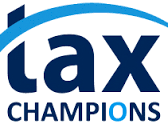Tax Resolution
It’s expensive to owe money to the IRS. In fact, many taxpayers avoid filing their tax returns in hopes of staying “under the radar.” But the IRS takes taxes quite seriously, saying, “If you cannot pay the full amount of taxes you owe, you should still file your return by the deadline and pay as much as you can to avoid penalties and interest.” If they must come to you for payment, they employ somewhat ruthless methods until there is a tax resolution. These can include wage garnishments, bank levies, liens and more.
Taxpayers are understandably hesitant to have any transaction with the IRS until they can pay their bill. However, a better way to avoid collection efforts is to file returns on time every year and arrange a payment agreement with the IRS. Therefore, here are your options for tax resolution.
Tax Resolution Method 1: Personal Loan or Credit Card
The fastest way to resolve back-tax debt is to pay it off. If the taxpayer doesn’t have immediate access to the funds, a personal loan or credit card may do the trick. But be sure to weigh out the options available to you. Credit cards may certainly prove to be more expensive than the interest accrued on an IRS installment plan. Read more on that in the next section.
Credit Cards
Greg McBride, the chief financial analyst at Bankrate, advises consumers to look at the rewards on the credit card to be achieved in comparison to the fee charged to pay with the credit card. “In some instances, it can be beneficial to pay your tax bill with a credit card,” he says, “as long as the value of the reward points earned exceeds the convenience fee and you pay the card balance in full.”
The IRS has approved three processing companies for accepting credit card payments for tax resolution on their behalf. These are PayUSAtax.com, Pay1040.com, and OfficialPayments.com/fed. Each of these processors charges a fee equal to a percentage of the transaction amount. For example, the least expensive processor is Pay1040.com, who charges 1.87% of the transaction amount. If your tax balance is $10,000, their fee would total approximately $187.
In addition, inquire about the interest rates charged by the credit card company and the IRS. McBride notes, “It is not wise to finance a tax bill at a credit card’s double-digit interest rates when the IRS is currently charging a rate of just six percent on overdue taxes.”
Personal Loan
Similarly, the banking institute offering to extend a personal loan may charge interest rates higher than those of the IRS. For that reason, it’s prudent to compare rates before committing to either payment option. Above all, analyze the monthly payment that results from a personal loan or payment arrangement with the IRS. Maintaining timely payments are critical in both cases, so be sure that your budget can easily afford the payment you’re committing to. Efficient tax resolution can be achieved if this decision is made after both options are thoroughly examined.
Tax Resolution Method 2: Payment Plan
The Taxpayer Advocate Service points out, “Most options for paying off a tax debt work best if you are proactive.” It continues, “By taking an action as soon as possible, you’ll help ease the burden and keep the IRS from acting to collect the debt.” Furthermore, the IRS even offers a collection of tax resolution options for a variety of potential consumer circumstances. These options are collectively called the Fresh Start Initiative. It includes such options as the Offer in Compromise and installment agreements.
For more information about the Offer in Compromise, see the next section.
Short-term Payment Plans
Taxpayers may benefit from a short-term payment plan that extends their payment deadline 120 days. Penalties and interest will continue to accrue until the balance is paid in full. This option is ideal for a taxpayer who will be able to pay their entire tax bill within a few months from the original tax deadline.
Long-term Payment Plans
Taxpayers that need a longer period of time to pay off their balance need long-term payment plans. These are characterized by monthly payments for a set period of time, leading to complete tax resolution.
Marketwatch cautions consumers about applying for a payment agreement with the IRS. They say, “When you enter into an installment agreement, you must pledge to stay current on your future taxes.” The IRS will not consider engaging in subsequent payment agreements until the year you’re currently paying on is fully resolved.
The IRS also offers the following tips for maintaining timely payments on a long-term payment plan:
- Pay at least your minimum monthly payment when it’s due.
- File all required tax returns on time and pay all taxes in-full and also on time (contact the IRS to change your existing agreement if you can’t.)
- Expect future refunds to be applied to your tax debt until the tax resolution is complete.
- Make all scheduled payments, even when the IRS applies a refund to your account balance.
- When paying by check, include the following information: name, address, SSN, daytime phone number, tax year and return type on your payment.
- Notify the IRS of your new address if you move.
- Confirm your payment information, date and amount by reviewing your recent statement or the confirmation letter you received.
Tax Resolution Method 3: Offer in Compromise
The Offer in Compromise isn’t the holy grail that many people think it is. It’s reserved for a limited number of cases in special circumstances. The IRS explains, “We generally approve an offer in compromise when the amount offered represents that most that we can expect to collect within a reasonable period of time.”
The taxpayer needs to include the application fee and down payment with the offer. Whether the IRS approves or rejects the offer, they will keep the payments included with the offer. The application fee is non-refundable, and they will apply the down payment to your back-tax balance. If tax resolution isn’t accomplished through the offer, it can be an expensive disappointment. If the IRS approves the offer, it’s an ideal way to transition back into compliance with the IRS.
Constructing an offer can be complex, as well as confusing. Many experts recommend hiring a reputable tax professional to do this on your behalf.
The IRS assesses the offer in terms of doubt as to liability, doubt as to collectability, and effective tax administration. In English, these boil down to doubt about owing the tax debt, doubt the ability to collect the debt, and also economic hardship, respectively. The IRS explains even more about being unable to collect the debt saying, “Doubt as to collectability exists in any case where the taxpayer’s assets and income are less than the full amount of the tax liability.”
Payment Options for the Offer in Compromise
The IRS offers three payment options for the Offer in Compromise method of tax resolution. First, the shortest payment period is the lump sum option. The taxpayer can pay the amount in the offer in five payments or less. The first payment should be included with the offer and equal at least 20 percent of the offer. The short-term periodic payment option can extend to 24 payments. The deferred periodic payment extends until the statute of limitations for collections expires.
Tax Resolution Method 4: Uncollectable Status
Finally, one may examine all options available for tax resolution and conclude that none of them can apply to him or her. Consumers that are unable to utilize these options to pay their back-tax debt may request a currently-not-collectible (CNC) status. The IRS must analyze the taxpayer’s case, including income, assets and expenses, to determine that this status is suitable.
If so, this status may remain in place for the short-term or long-term. Above all, it’s designed to give the taxpayer an opportunity to overcome their financial hardship. In turn, the IRS expects the taxpayer to arrange a way to pay off the debt in the future as soon as possible. The Taxpayer Advocate Service adds, “During the time the IRS may collect the balance you owe, it may review your income annually to see if your financial situation improved.”
Tax Champions Can Help with Your Tax Resolution
Many nuances go with options available to taxpayers to pay back-tax debt. The IRS aims to collect as much of the assessed tax as possible in the shortest time-period. Tax Champions has been delivering tax resolution services to consumers for over 35 years. We’re especially adept at understanding your needs and the pathway to favorable results. We’ll negotiate the lowest balance and/or the lowest possible monthly payments with the IRS on your behalf. We always strive to meet and exceed our customers’ expectations. Our dedication is reflected in our A+ rating at the Better Business Bureau with no customer complaints.
Start by giving us a call today at 805.639.0841. One of our knowledgeable representatives will review your case for free. You’re not obligated to hire our firm for this free review. We’ll discuss your goals, which may help to illuminate your viable options. We’re available during day and evening hours, every day of the week. Give us a call today.
Sources
[1] Bischoff, B. (2019, April 24). What to do if you can’t pay your taxes. Retrieved from //www.marketwatch.com/story/what-to-do-if-you-cant-pay-your-taxes-2015-02-19
[2] Currently Not Collectible. (2019, January 30). Retrieved from //taxpayeradvocate.irs.gov/get-help/currently-not-collectible
[3] I Can’t Pay My Taxes. (2019, August 17). Retrieved from //taxpayeradvocate.irs.gov/get-help/i-can-t-pay-my-taxes
[4] Pay Taxes by Credit or Debit Card: Internal Revenue Service. (2019, July 8). Retrieved from //www.irs.gov/payments/pay-taxes-by-credit-or-debit-card
[5] Payment Plans Installment Agreements: Internal Revenue Service. (2019, July 18). Retrieved from //www.irs.gov/payments/payment-plans-installment-agreements
[6] Smith, K. A. (2019, March 19). What to Do If You Owe Taxes and Can’t Afford to Pay Them. Retrieved from //www.bankrate.com/taxes/when-you-owe-taxes-irs-cant-afford-pay/
[7] Topic No. 204 Offers in Compromise. (2019, July 18). Retrieved from //www.irs.gov/taxtopics/tc204
[8] What if I Can’t Pay My Taxes: Internal Revenue Service? (2019, July 17). Retrieved from //www.irs.gov/newsroom/what-if-i-cant-pay-my-taxes

